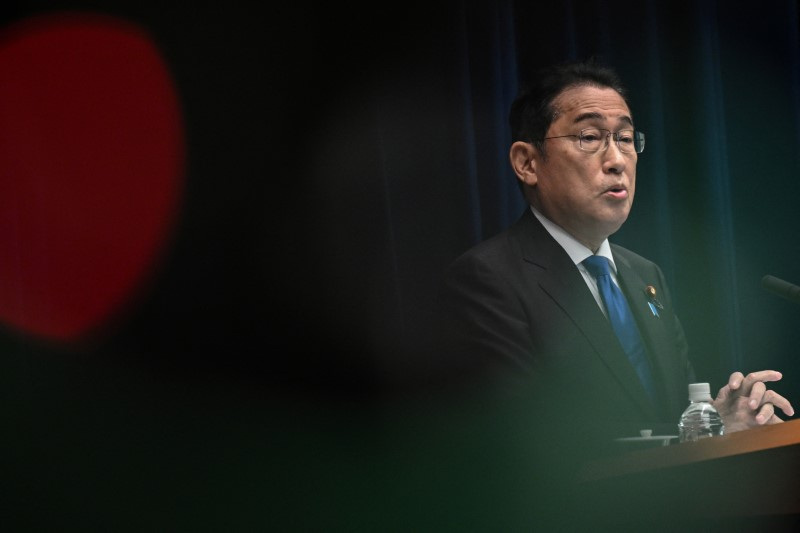Reactions to Japan’s PM Kishida stepping down
2024.08.14 00:20
(Reuters) – Japanese Prime Minister Fumio Kishida said he will step downin September, ending a three-year term marred by political scandals and paving the way for a new premier to address the impact of rising prices.
Here are some reactions to the news from market and political analysts:
SHOKI OMORI, CHIEF JAPAN DESK STRATEGIST, MIZUHO SECURITIES, TOKYO
“Political uncertainty isn’t good at all, with Mr. Kishida not even raising his hand for election. The market implication is that Japanese politics is going to be foggy, and whoever the LDP premier will be, the cabinet choice is going to be very unclear and thus the policy path is going to be a mystery. In short, risk-assets, particularly equities, will likely be hit the most, given foreign investors’ attention and big inflow/outflow in the markets.
“Market participants are going to dislike the uncertain situation, especially those investing in risk assets, such as equities. PM Kishida pushed for New NISA (investment accounts) and now he’s pulling back. Yen is going to depend on external factors especially U.S. data and the Fed. JGBs will still remain a supply/demand market. My initial view is that equities are going to be hit the most.”
MICHAEL CUCEK, PROFESSOR SPECIALISING IN JAPANESE POLITICS, TEMPLE UNIVERSITY, TOKYO
“He’s been a dead man walking for quite some time. That there was no way to add up the numbers so that he would get reelected was clear for a long time. Public discontent with Kishida was connected with the LDP’s entanglements with the former Unification Church, which became apparent after Abe’s assassination, as well as slush fund scandals, and the slide in the yen that increased inflation pressures.”
KOICHI NAKANO, POLITICAL SCIENCE PROFESSOR, SOPHIA UNIVERSITY, TOKYO
“I was expecting Kishida not to be able to run for quite some time. And that’s to do with basically the statistics. He’s already passed average tenure of an LDP prime minister by serving three years. And he’s not anywhere near a position to be able to say, ‘I’m special, I need more time.’ So he was running against the odds to begin with.
“And at the end of the day, an LDP incumbent prime minister cannot run in the presidential race unless he’s assured of a victory. It’s like the grand champion yokozunas of sumo. You don’t just win, but you need to win with grace. And so if you can’t do that, you’re supposed to retire. It’s considered to be unseemly for the president to run and to get defeated as an incumbent.
TAKAHIDE KIUCHI, NOMURA RESEARCH INSTITUTE EXECUTIVE, TOKYO
“The Kishida administration at first raised market concerns by leaning to (re)distribution measures, but it later pivoted to expansionary policies such as the ‘asset income doubling plan’, which was well received by the markets. However, the administration has recently launched policies with unclear objectives such as tax cuts, giving an inconsistent impression on its policy focuses.”
KENTA IZUMI, LEADER OF THE BIGGEST OPPOSITION CONSTITUTIONAL DEMOCRATIC PARTY (POST ON X), TOKYO
“The issues of the former Unification Church, political money and inflation countermeasures have been headache for him, but these problems are still unsolved.”

RAHM EMANUEL, US AMBASSADOR TO JAPAN(POST ON X), TOKYO
“Under Prime Minister Kishida’s steadfast leadership, Japan and the United States have ushered in a new era of relations for the Alliance.”








